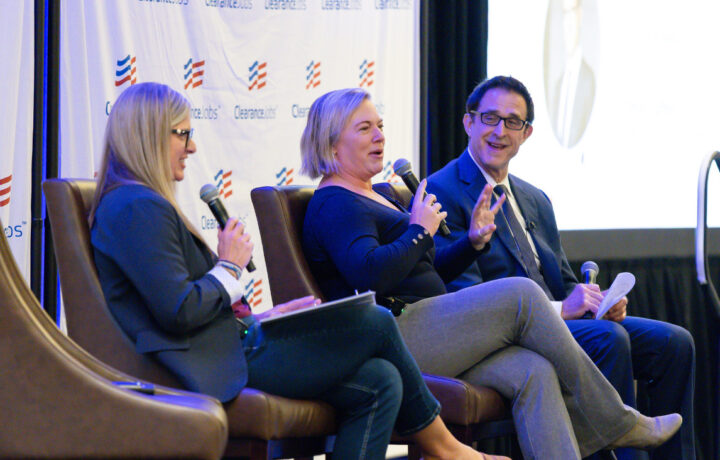At Connect 2025, moderator Jill Hamilton sat down with Col. Kris Saling, author of Data-Driven Talent Management, and communication strategist Steve Gaffney (Unconditional Power) to unpack what effective leadership looks like when everything is in flux.
Saling’s first rule: resist the urge to promise certainty. Leaders often soothe with absolutes—“these jobs are safe,” “AI will/won’t replace this work”—but that creates expectations they can’t control. Instead, ground teams in “here’s what we know, here’s what we don’t,” restate mission, priorities, and values, and create predictable touchpoints. Reliability of communication becomes the anchor when outcomes can’t be guaranteed.
Gaffney argued the real problem isn’t what people say—it’s what they don’t. Honest communication means surfacing the unsaid, inviting dissent, and reacting in ways that don’t “train” people to withhold. In practical terms: pick up the phone for hard messages (tone carries care better than email), then document in writing.
Anger in today’s market often masks fear: job loss, contract shifts, clearance mismatches. Leaders should expect outsized reactions, seek second opinions on hot interactions, and—where possible—offer candidates specific, helpful feedback. Clarity reduces anxiety.
Both speakers pressed for precision around AI hiring. If a requisition says “AI skills,” what does that mean—back-end model work, data science, prompt/agent design, or an “AI orchestrator” who integrates tools and workflows? Buzzwords attract noise; specificity attracts fit.
Structurally, Saling urged moving toward flexible, cross-functional, project-based teams—a federal shift accelerated by current disruption. Tactically, Gaffney recommended 15-minute daily huddles to replace time-sucking “got-a-minute” sidebars and keep everyone aligned.
7 key takeaways
- Don’t sell certainty—share the ground truth.
- Publish a cadence: when people will hear from you matters.
- The unsaid is the risk—invite it, reward it.
- Focus 100% on what you can control.
- Give candidates concise, actionable feedback when you can.
- Define “AI skills” precisely (role, stack, outcomes).
- Replace ad-hoc interruptions with 15-minute daily huddles.
Bottom line: you can’t remove chaos, but you can reduce uncertainty. Tell the truth, clarify the work, create rhythms, and build teams designed to pivot.




